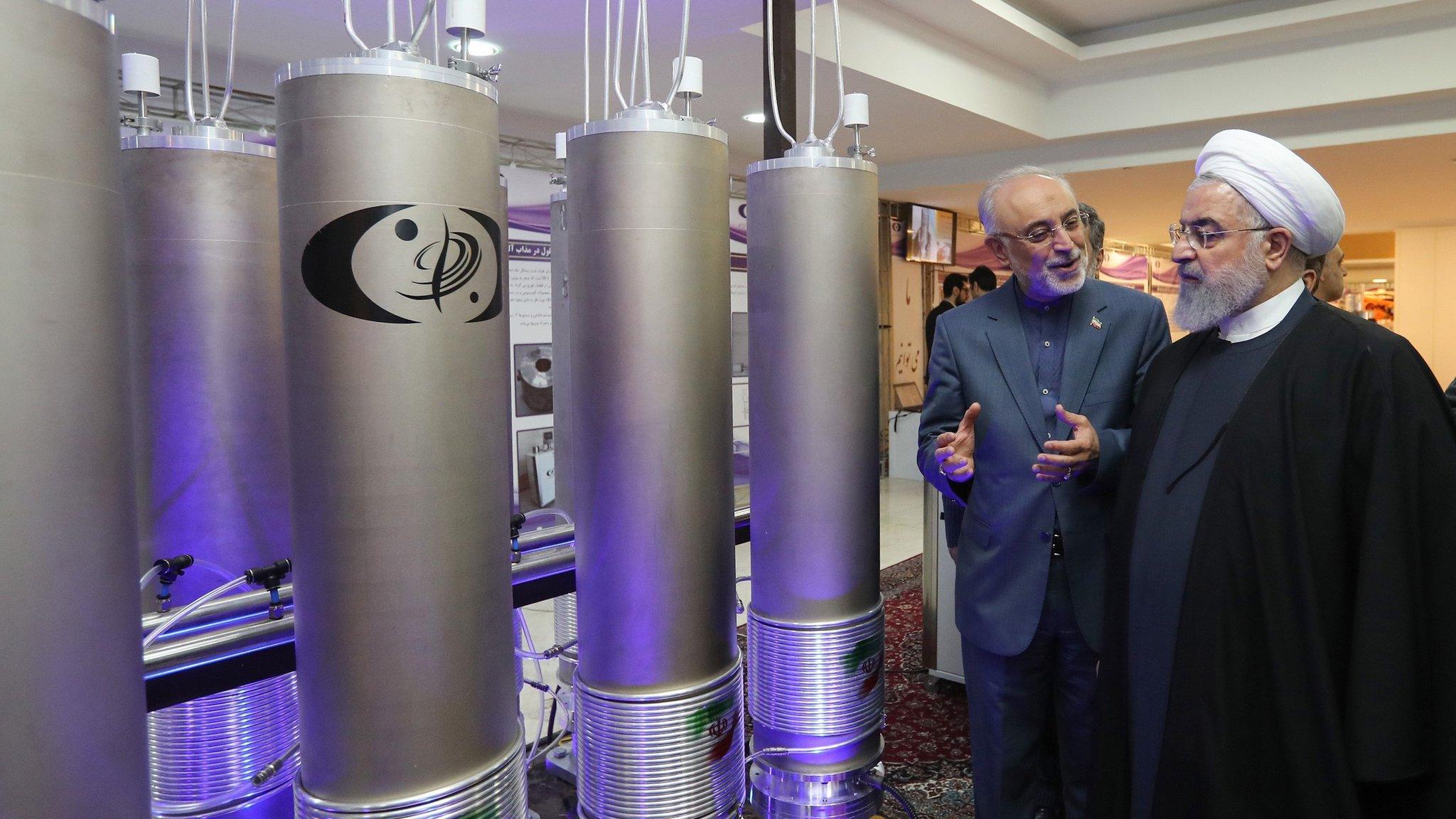Iran nuclear deal: EU urges reversal of uranium enrichment breach
- Published
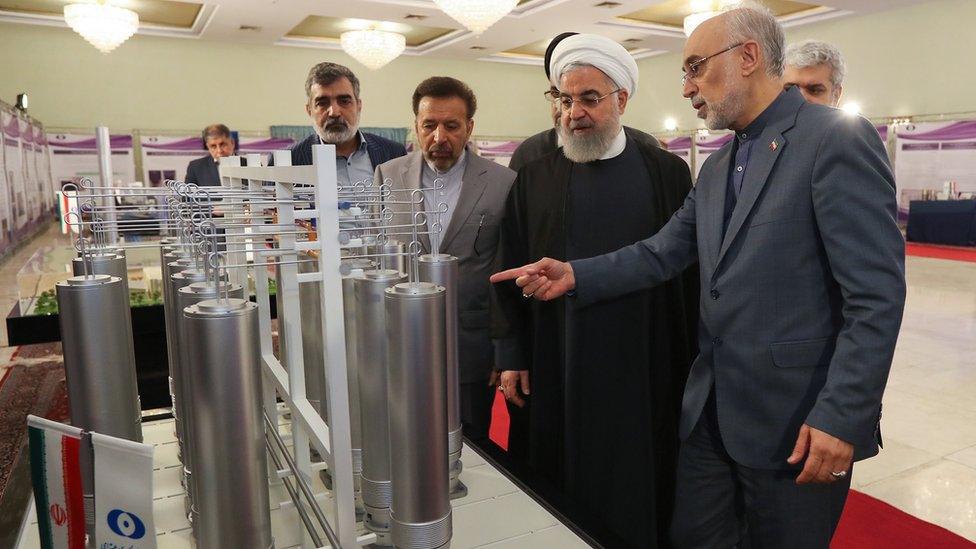
Iran's President Hassan Rouhani says world powers have failed to abide by their commitments
The EU has strongly urged Iran to reverse its decision to raise the level at which it enriches uranium beyond that allowed by a 2015 nuclear deal.
Spokeswoman Maja Kocijancic said the bloc was extremely concerned after Iran announced that it was producing material with a fissile purity of 4.5%.
European leaders fear it could speed up the potential development of a nuclear weapon - something Iran denies seeking.
Iran has said it is responding to sanctions the US reinstated last year.
The country has also accused European powers of failing to protect its economy from the sanctions' effects and insisted that its actions are in line with the deal - known formally as the Joint Comprehensive Plan of Action or JCPOA.
It has promised to keep reducing its commitments every 60 days unless it begins to see the accord's promised benefits, and warned the Europeans that "certain strange acts" will prompt it to "skip all the next steps" and implement the final one.
The five other parties to the deal - the UK, France, Germany, Russia and China - could refer the issue to a "joint commission", a process that could ultimately lead to the "snap back" of the UN and multilateral sanctions lifted three years ago.
"We are extremely concerned at Iran's announcement that it has started uranium enrichment above the limit of 3.67%," Ms Kocijancic told reporters on Monday.
"We strongly urge Iran to stop and reverse all activities inconsistent with its commitments... We are in contact with the other JCPOA participants regarding the next steps under the terms of the JCPOA, including a joint commission," she said.
Chinese foreign ministry spokesman Geng Shuang said the "root cause" of the crisis was "the maximum pressure exerted by the US on Iran".
US Vice-President Mike Pence said the pressure campaign would "change Iran's malign behaviour and hold the regime accountable for its destructive actions", and vowed that the US would "never allow Iran to obtain a nuclear weapon".
What is enriched uranium?
Uranium, a radioactive element mined from the ground, is described as enriched after it has been converted into a gas and passed through centrifuges - a process leaving it with a higher concentration of a particular isotope suitable for nuclear fission, called U-235.
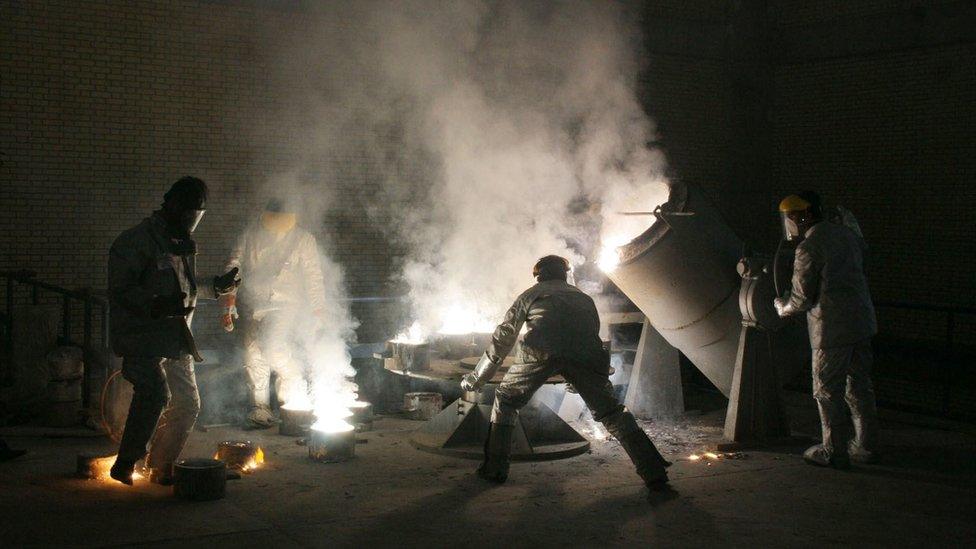
Prior to enrichment, uranium ore concentrate must be converted into uranium hexafluoride
Low-enriched uranium, which typically has a 3-5% concentration of U-235, can be used to produce fuel for commercial nuclear power plants, while highly-enriched uranium has a concentration of 20% or more and is used in research reactors.
Weapons-grade uranium is 90% enriched or more.
What activities did the nuclear deal restrict?
Iran strongly denied any intention to build nuclear weapons, but before negotiations began it was enriching uranium up to 20% concentration, rapidly stockpiling enriched uranium, and had installed almost 20,000 centrifuges.
It was also building a heavy-water nuclear facility at Arak that could have produced significant quantities of weapons-grade plutonium - enough for one or two nuclear bombs each year.
US experts estimated that Iran's so-called "break-out time" - the time required for it to have enough fissile material for a bomb - at two to three months.
The deal saw Iran agree limits on all uranium enrichment and enrichment-related activities, including keeping the level of enrichment at 3.67% or below until 2031, stockpiling no more than 300kg (660lbs) of 3.67% enriched uranium, and operating no more than 5,060 of low-efficiency centrifuges.
The Arak reactor was also to be redesigned and rebuilt so it would produce far less plutonium overall and no weapons-grade plutonium when operated normally.
Following the deal, Iran's break-out time was assessed to be at least one year.
Why do Iran's actions matter?
Experts at the Arms Control Association, a Washington-based advocacy group, said Iran's breach of the 300kg stockpile limit on 1 July did not pose a near-term proliferation risk.
They noted that Iran would need roughly 1,050kg of 3.67% enriched uranium to be able to produce enough weapons-grade material for one bomb.
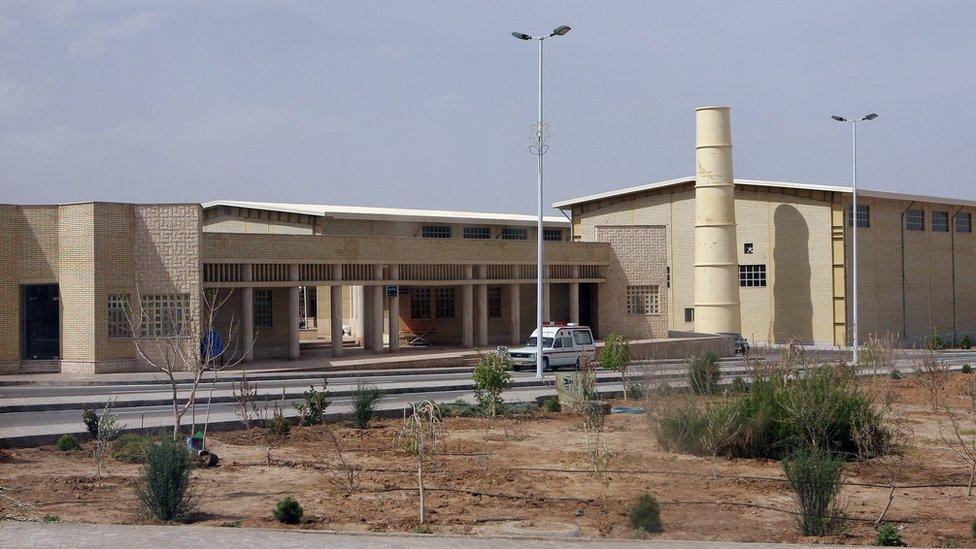
The nuclear deal allows Iran to produce low-enriched uranium at the Natanz facility
But the experts warned that if Iran resumed higher levels of enrichment, that would pose a more serious proliferation risk and shorten the break-out time. That is because going from uranium's natural state of 0.7% concentration of U-235 to 20% takes about 90% of the total effort required to get to weapons-grade.
The Atomic Energy Organisation of Iran has said enriching uranium up to 4.5% will allow it to provide fuel for the Bushehr power plant, and that it does not yet need to produce 20% enriched uranium for the Tehran research reactor.
The International Atomic Energy Agency (IAEA), the global nuclear watchdog, said on Monday its inspectors had verified Iran was enriching uranium above 3.67%.
Why is Iran no longer abiding by its commitments?
The Iranian economy has slumped since the US withdrew from the nuclear deal in May 2018 and began reinstating sanctions targeting its oil and banking sectors. President Trump said the deal was flawed and that he wanted to force Iran's government to renegotiate the terms - something it refused to do.
In May, after the US ended exemptions from penalties for countries still importing Iranian oil, as well as those exchanging surplus Iranian low-enriched uranium for ore concentrate, Iran's President Hassan Rouhani said it would retaliate by no longer abiding by the enriched uranium stockpile limit.
Mr Rouhani also gave the three European countries which are still in the deal - France, Germany and the UK - until 7 July to shield Iran from the sanctions' effects. If they failed, he said, Iran might start enriching uranium beyond 3.67% concentration.
The European Union has set up a mechanism for facilitating trade, known as Instex, which essentially allows goods to be bartered between Iranian and foreign companies without direct financial transactions. It became operational on 29 June, but Iran said it did not meet its needs.
- Published23 November 2018
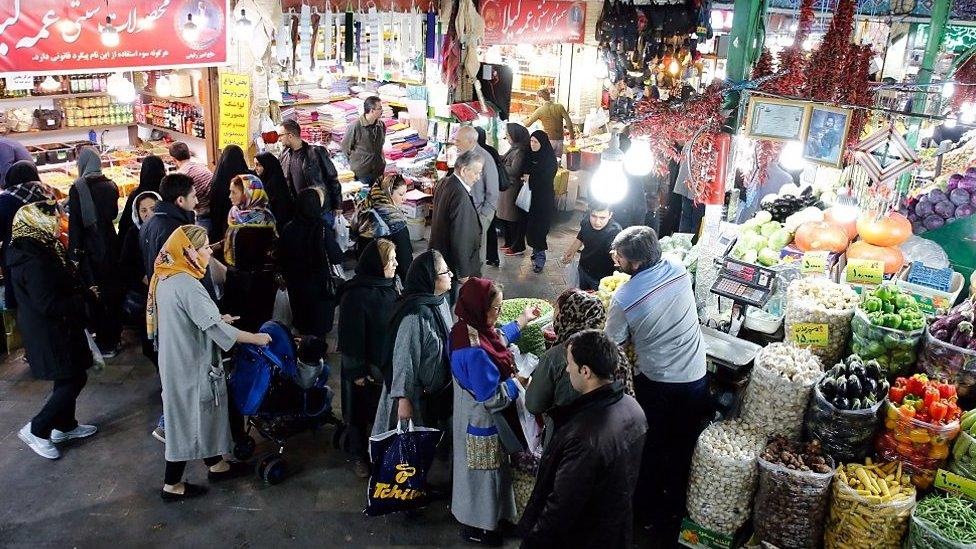
- Published30 April 2021
